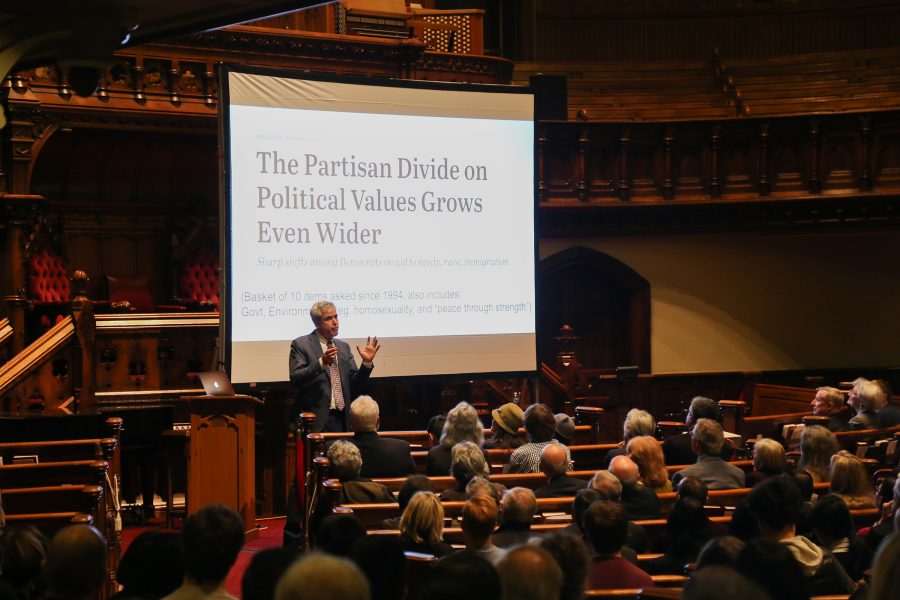Last week, NYU Stern School of Business professor Jonathan Haidt gave a lecture at the Fifth Avenue Presbyterian Church about his qualms with today’s volatile sociopolitical landscape and the bad ideas plaguing Gen-Z students on university campuses.
Haidt discussed the problem of trying to find the cause behind severe political polarization in the United States over fundamental issues. Using both anecdotes and empirical data, Haidt eliminated phenomena such as race and gender identities from the list of potential causes. He cited the emergence of a growing fringe population on either side of the political spectrum as the driving force behind the country’s polarization and pointed at various fallacies in the current education and university systems.
“People who have a college degree are much more vicious about political issues that are symbolic,” Haidt said. “They’re not just focused on the conflict, [but also] on cultural issues. As we get more educated, we get more polarized. This polarization is likely to continue, unless we understand it and make some changes, which we can do.”
He admitted his approach assumed an existent hostility in settings like university campuses, but cited the rise in protests against certain public speakers voicing opinions deemed derogatory and offensive by the student body itself as evidence that this hostility exists. He highlighted a specific 2015 incident at Brown University, when students attempted to cancel an event between public figures Jessica Valenti and Wendy McElroy, voicing for and against the existence of a rape culture in universities, respectively.
NYU’s history of student activism may support Haidt’s viewpoint. On Oct. 16, several NYU students and club members protested against a Nobel Peace Prize laureate and former Secretary of State Henry Kissinger outside of Stern’s Kaufman Management Center on Gould Plaza. Videos of protestors interrupting the 95-year-old’s talk surfaced as examples of the outspokenness of NYU’s student population.
This is only the most recent protest, however, with conservative Gavin McInnes being pepper-sprayed when coming to speak on campus and Milo Yiannopoulos cancelling a planned visit due to safety concerns in 2016. In a post-lecture event, Haidt expressed to WSN that he would be reluctant to give a similarly opinionated talk at NYU.
In his lecture, he gave his rationale for speaking at the church instead of NYU.
“I am a Jewish atheist, but I have been invited to speak at a number of churches and Christian colleges and synagogues as well,” Haidt said. “In this time, religious communities are some of the best conversation-taking places because there is a spirit of forgiveness, tolerance of errors, willingness to give people the benefit of the doubt.”
Gerard Kennedy, a visiting doctoral researcher at the NYU School of Law and fan of Haidt’s book “Righteous Mind,” attended the talk. When asked, Kennedy expressed his one criticism of the lecture.
“I wouldn’t say [I had] glaring disagreements; from time to time I do think he can sound a tad alarmist,” Kennedy said. “I feel that the trends he cites in college campuses, I think he may be overstating it. But I think there’s some truth in what he has to say.”
Email Krishang Nadguada at [email protected].


























































































































































